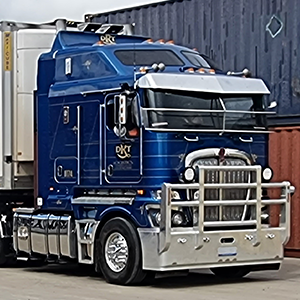
Published by:
Matthew Ainsworth
Advantia offers a range of online services for the heavy vehicle industry to assist with PBS vehicle design, assessment and access. Here, we look at the Low-Speed Check tool. Advantia offers four services as part of the PBS Toolbox on our website. All you need to do to get started is go to the toolbox,… Read more »
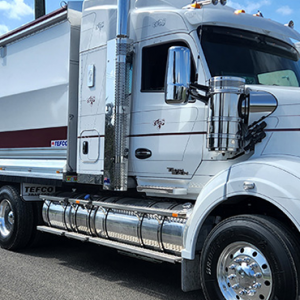
Published by:
Sina Milani
At Advantia, we pride ourselves on delivering tailored solutions that meet the unique needs of our clients in the heavy vehicle industry. Recently, we secured PBS Design Approvals for bespoke truck and 5-axle dog combination designs, highlighting our capability to handle complex and uncommon vehicle types with care and precision. Vehicle Configurations The vehicle combination… Read more »
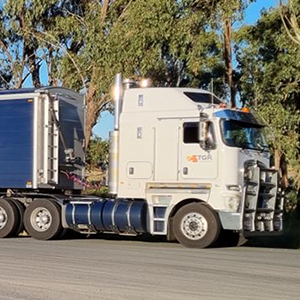
Published by:
Viv Sun
Introduced in October 2007, the Performance Based Standards (PBS) Scheme is a national initiative for the safer and more productive movement of Australia’s freight task. This scheme helps truck and transport operators improve their efficiency, sustainability, and safety through the adoption of innovative vehicle designs. While there are many benefits of PBS, for your vehicles… Read more »
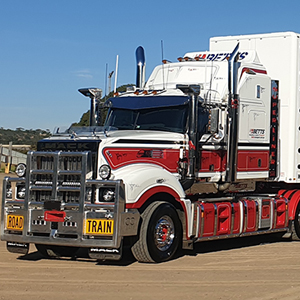
Published by:
William Mitton
One of the challenges faced when using Performance Based Standards (PBS) is achieving the stability requirements while also meeting the loading height needs. For freight tasks that typically have high centre-of-gravity loads, such as livestock transport or car-carriers, this can prove to be difficult. As a result, operators of these loads typically don’t use PBS,… Read more »
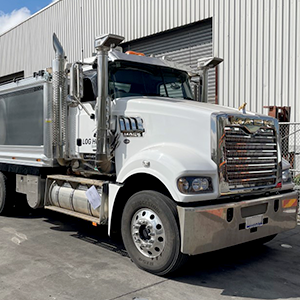
Published by:
Daniel Nolan
Are you aware that owning a 3-axle truck and a 4-axle trailer might exempt you from requiring Performance-Based Standards (PBS) documentation? The National Heavy Vehicle Regulator (NHVR) introduced the Class 3 National Notice for 20m Long 3-axle Truck and 4-axle Dog Trailers just over a year ago. Whether or not you utilise this Notice, Advantia… Read more »
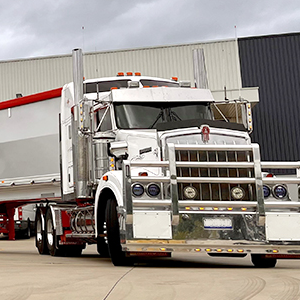
Published by:
Saizo Takeuchi
A user guide to understanding the required vehicle dimensions for A-doubles and gaining access to the pre-approved networks in Victoria. Key learnings: Short and compact combinations with many axles (i.e. 91t tri-dolly 30m A-double) leads to a more restrictive mass allowance on routes crossing many bridges Having more generous spacings between axle groups allows for… Read more »
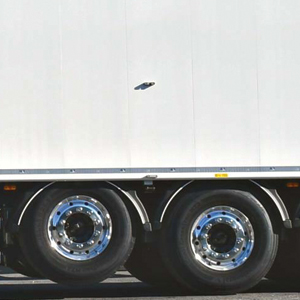
Published by:
Sina Milani
Liftable and self-steerable trailer axles are recognised for improving vehicle performance in terms of fuel economy and low-speed manoeuvrability as well as reducing tyre scrub. However, the choice of where to fit the liftable or self-steerable axles within an axle group is not a trivial question! There are multiple factors contributing to pros and cons… Read more »
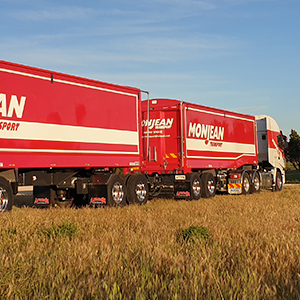
Published by:
William Mitton
Performance-Based Standards (PBS) are a set of regulations that focus on the safety and efficiency of heavy vehicles by assessing their performance. Where a PBS Design Approval (DA) demonstrates that a concept design meets PBS standards, a PBS Vehicle Approval (VA) confirms that the physical vehicle matches the design in the DA. To help clarify… Read more »
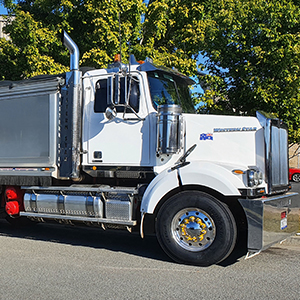
Published by:
Matthew Ainsworth
Advantia offers a range of online services for the heavy vehicle industry to assist with PBS vehicle design and assessment. In this article, we take a closer look at how to use the Tier 1 Mass Calculator. Advantia offers four services as part the PBS Toolbox on our website. All you need to do to… Read more »

Published by:
Daniel Nolan
Victoria, New South Wales, and South Australia have taken significant steps toward accommodating low and zero-emission heavy vehicles by increasing axle limits, a move crucial for the integration of these eco-friendlier trucks into heavy vehicle networks. These concessions are in response to the fact that these heavy vehicles are typically heavier from the additional mass… Read more »









